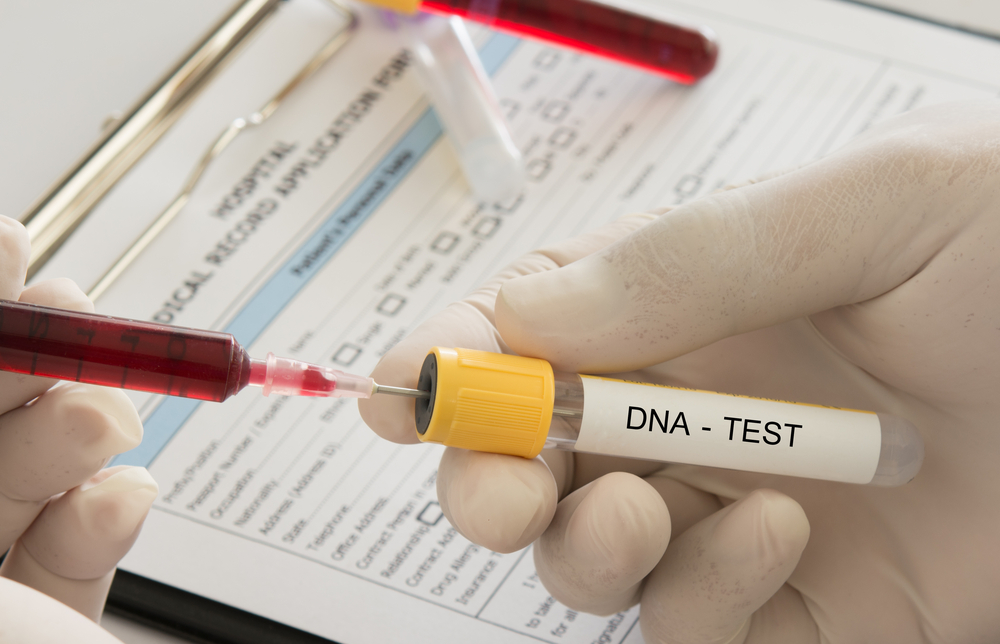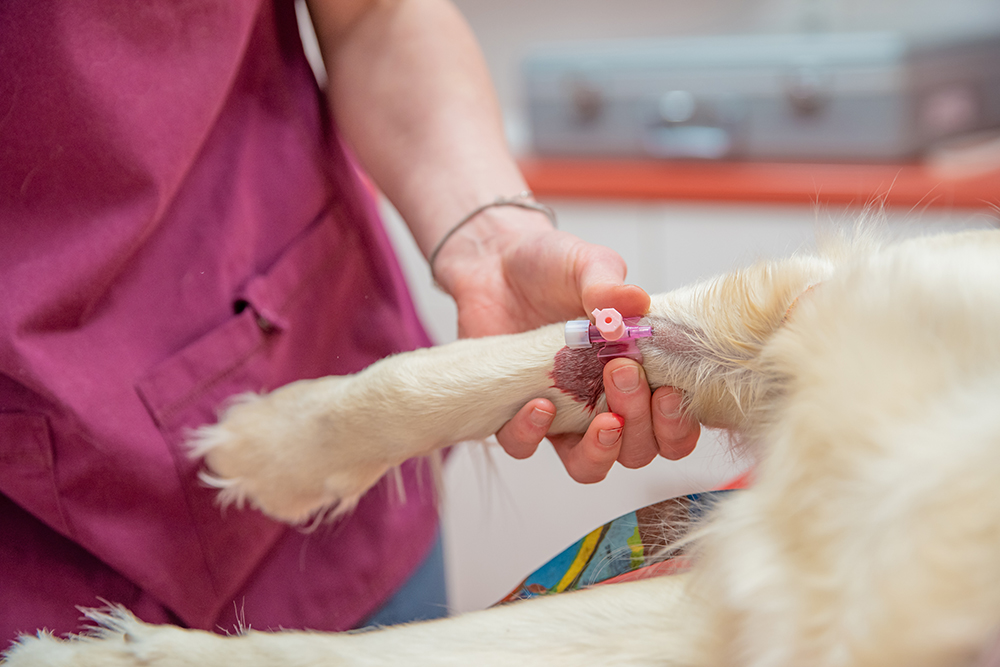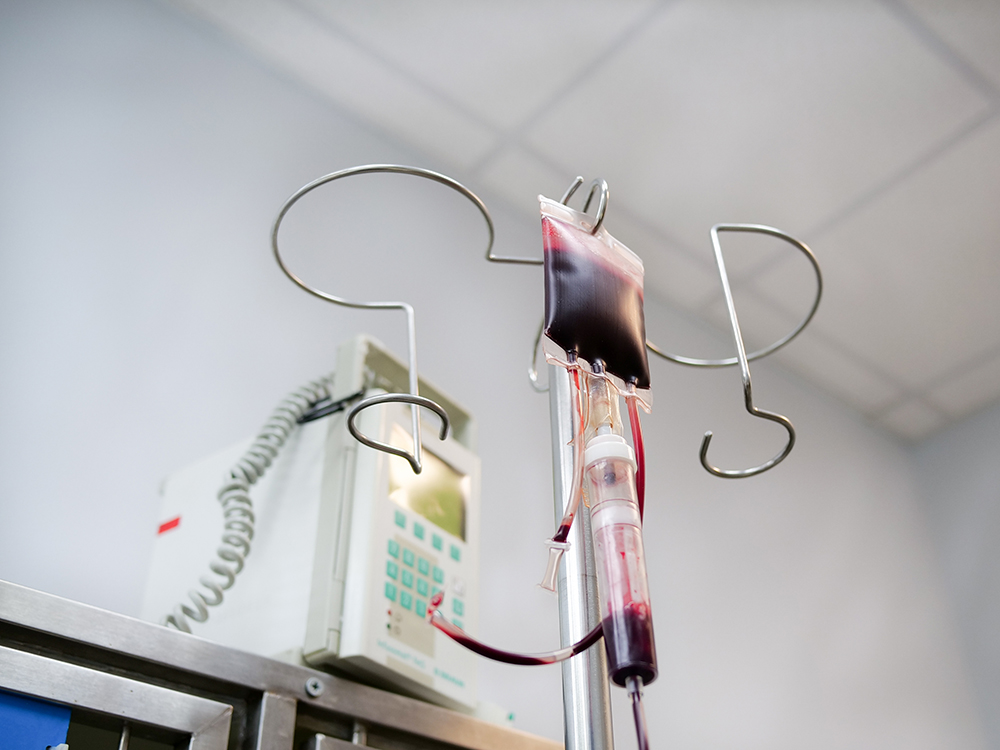Do Canines Have Totally different Blood Varieties? Vet-Verified Information & Data – Dogster
You most likely have been desirous about your particular person blood type these days, you may need been questioning if canines have utterly completely different blood kinds too. Blood could also be categorized into utterly completely different groups and these may additionally be known as kinds. Like folks, canines do have utterly completely different blood kinds, nevertheless they don’t seem to be the similar as we have got.
Individuals are recognized to have 4 most necessary blood groups using the ABO system—A, B, AB, and O, and each of these could also be rh damaging or rh optimistic. Giving 8 groups in full for folks. Canines have spherical 12 blood groups, with 6 of these being most likely essentially the most clinically important and a few further unusual ones current in some specific breeds paying homage to Dalmatians and Shih Tzus.
Some canine tags embrace the canine’s blood type, and your vet would possibly preserve this data in case your canine has had a transfusion or been a blood donor.

What Are Blood Types?
Blood is a flowery physique fluid with many capabilities crucial to life. It might be categorized into groups or kinds which is necessary data when a blood transfusion is required. Antigens are constructions that could possibly be found on the ground of the pink blood cells. Purple blood cells could also be optimistic or damaging for a specific antigen.
The blood group of an individual is assessed by the antigens found on the ground of the pink blood cells.


Canine Blood Types
Blood kinds in canines are named as Canine Erythrocyte Antigen (DEA) 1.1, 1.2, 3, 4, 5, 6, 7, 8, Dal, Kai-1, and Kai-2. Canines could also be optimistic or damaging for these antigens, e.g. DEA 4 + or DEA 4-.
Blood type is determined by genes, which are inherited from the dad and mother. As such, it isn’t unusual for canines of the similar breed to have the similar blood type, nevertheless not on a regular basis. DEA 1.1 damaging type is taken into consideration the “Widespread Donor” for canine blood transfusions.
Blood type DEA 1.1 damaging is a relatively unusual blood type in canines, nevertheless it is considered the widespread donor blood type that is protected to supply to most canines in need of a blood transfusion. Although it is significantly unusual, the following breeds normally are likely to have this blood type:
Conversely, the following breeds normally are usually DEA 1.1 optimistic:

Canine Blood Donors
Canines need blood donors, similar to folks do. There are packages prepare notably to take donations of blood from canines. Some veterinary clinics moreover current these firms and, in some situations, donors get hold of free objects, reductions on remedy, and completely different incentives.
To be regarded as a blood donor your canine would probably must be match and healthful, not on any medication, between 1 and eight years of age, current with their vaccinations, and over 50 kilos in weight with an easy-to-handle temperament.
Ask your vet in the event you’re occupied with donating your canine’s blood they usually must be able to advise of an space program or scheme that is looking out for donors.


When Could a Canine Desire a Blood Transfusion?
Blood donors are required when canines need blood transfusions. Principally, canines need transfusions after they’ve suffered massive blood loss, each after an accident, attributable to essential illness, immune system destruction of pink blood cells, and even following an operation. That’s typically an emergency state of affairs with time of the essence.
Von Willebrand Sickness is a blood clotting state of affairs that causes bleeding and should lead to a canine shedding a great deal of blood, requiring transfusion.
Is There a Widespread Canine Blood Form?
DEA 1.1 damaging is taken into consideration a typical blood type for canines and O damaging for folks. As Greyhounds are generally DEA 1.1 damaging they’re needed as blood donors. If a canine is receiving a blood transfusion for the first time essentially the most safe donor may be DEA 1.1 damaging as there will not be any naturally occurring antibodies to this blood type. Thus a direct and excessive transfusion response is simply not probably.
Transfusion Reactions
The interaction of antigens and antibodies between recipient and donor blood could trigger destruction of pink blood cells inside the recipient and as such it is rather necessary match up the blood kinds sooner than a transfusion. That’s notably important if the canine has obtained a blood transfusion to this point.
If a recipient canine has antibodies of their blood plasma to antigens present on the donor canine’s pink blood cells they’re going to be seen as worldwide and destroyed. It’s a type of transfusion response. These reactions can range from delicate to life-threatening, so the right blood type ought to be given all through any transfusion.
Cross-matching blood is a check out carried out sooner than a transfusion to test blood compatibility.


What’s The Rarest Blood Form in Canines?
Along with being the widespread blood donor type for canines, DEA 1.1 damaging is, sadly, considered amongst the rarest blood kinds. There have been blood kinds specific to Dalmations and Shih Tzu discovered so in terms of numbers these may be most likely essentially the most unusual. In distinction, DEA 1.1 optimistic is the most common canine blood type.
Can a Human Give Blood to a Canine?
Human blood and canine blood are incompatible and comprise very utterly completely different antigens, which efficiently means the canine’s physique would actively reject a human’s donor blood. As a consequence of this truth, human blood cannot be safely given to canines.

Conclusion
Much like folks, canines have utterly completely different blood kinds. In distinction to folks, who’ve 4 blood kinds, canines have better than 12 utterly completely different blood kinds. Blood type is important when transfusions are carried out, and these is likely to be required when a canine suffers necessary blood loss, generally following an accident, after surgical process, or on account of certain illnesses.
Curiously, the first-ever blood transfusion carried out was not on a human nevertheless was carried out on a canine.
Featured Image Credit score rating: Kamil Macniak, Shutterstock
